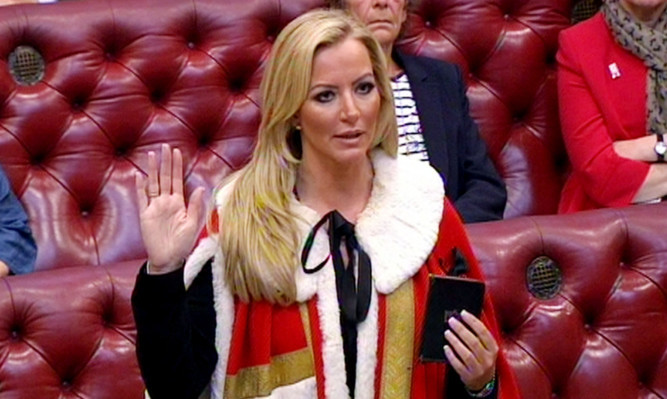Tu quoque, known as the appeal to hypocrisy, is a logical fallacy that has polluted political debate for centuries.
It is a tactic that attempts to discredit an argument not by directly addressing it, but by attacking the conduct of the person making it.
In Scotland we have a special form of this attack.
We call it “whitabootery”.
It has always been rife in sectarian bile-swapping, and has similarly afflicted Scottish constitutional sniping.

A nationalist points to money wasted on PPE, a unionist replies by citing money wasted on ferries.
A unionist criticises NHS waiting times in Scotland, a nationalist responds by attacking UK government test and trace costs.
Every one of these things is an abject failure of government.
All should be addressed.
But using one as a counter-argument to another is not genuine political debate.
Whitabootery – the poor politician’s get-out clause
Each subject has to be tested on its own merits. Otherwise the result is a circular denial of any responsibility for any matter.
If a political figure, or a party, has made a mistake or performed badly (and they all do, from time to time) they deserve criticism.
None should take the dullard’s way out by pointing to what someone else has done in a different sphere.
The problem with whitabootery is that citing false equivalences cannot find answers.
And we need answers.
You will notice that effective, respected politicians don’t use this as a shield to hide behind. They address questions directly.
A poor politician doesn’t give straight answers.
They pivot, they deflect. They answer some completely different question they imagine was asked.
Car crash interview with Liz Truss on @SkyNews
7 TIMES she refuses to answer question on PM breaking rules on refurb by having a Tory donor/Tory party pay for it
7 TIMES she says PM has “met the costs”
Such awkward question dodging that the interview is barely coherent#Ridge
— Marina Purkiss (@MarinaPurkiss) April 25, 2021
Ridiculously, they seem to think we don’t notice this chicanery.
But if professional politicians are bad, then broader social media exchanges are truly pathetic.
Defend, don’t deflect – don’t stoop to their level
There is an avalanche of whitabootery here, with each side as guilty as the other.
If you answer a criticism of your side by tweeting a list of why the other side is bad, then you haven’t scored a political point. You have revealed yourself to be an unsophisticated debater.
You look like an apologist who cannot recognise that, sometimes, all sides need to account for themselves and their decisions.
The conduct of all politicians on all sides should be examined dispassionately, whether you support their broad aims or not.
If you believe that a politician doesn’t have to answer for their actions, then you have no place in adult political debate.
You don’t know the difference between right and wrong or why that is vitally important.
You are an intellectual coward.
If a criticism is made of your side, judge it on its merits. Defend it with properly-reasoned argument.
But if your only reply is deflection or an attack citing a different subject, then you have damaged your side because you make it look like there is no viable defence.
And if you are reading this polemic and thinking: “Yeah. That’s what the other side do, not us”, then you’re part of the problem.
The quality of political debate in Scotland desperately needs an upgrade because there are big questions facing us. Questions with far-reaching consequences.
It’s time we talked openly and listened without prejudice.
Wise heads, not hotheads, are needed.
Everyone has a role in this.
Encourage those on your side to conduct themselves in a reasonable, adult, responsible manner.
A good start would be leaving childish whitabootery behind.













